NauticEd Online Sailing Course Review: Worth It?
There are a lot of ways to learn to sail, and if you look online, you'll see a variety of online learn-to-sail programs. One program we've mentioned in the past is NauticEd. NauticEd offers a broad range of training courses and has connections with charter and sail organizations to help students get accreditation to charter yachts. But is it worth the money you spend on it?
For the beginning sailor, the answer is a qualified "yes," the expense is worth it. For experienced sailors, there is value, but it's not as high since you'll end up repeating material you know. It depends on your level of experience and your objectives, there's always more to learn.
"NauticEd is a reasonably priced means to get shore-side, theoretical training in many fundamental sailing skills."
The answer is a qualified "yes" because the online portion is theoretical. You still need to get on the water to learn to sail, and you should find additional sources of learning. Fortunately, NauticEd has ties to sailing schools around the world, and you can work through them to continue your online education with real-world sailing and certification of your practical skills. But there are caveats, and it's important to know what you're getting into and what you can expect to get out of it.
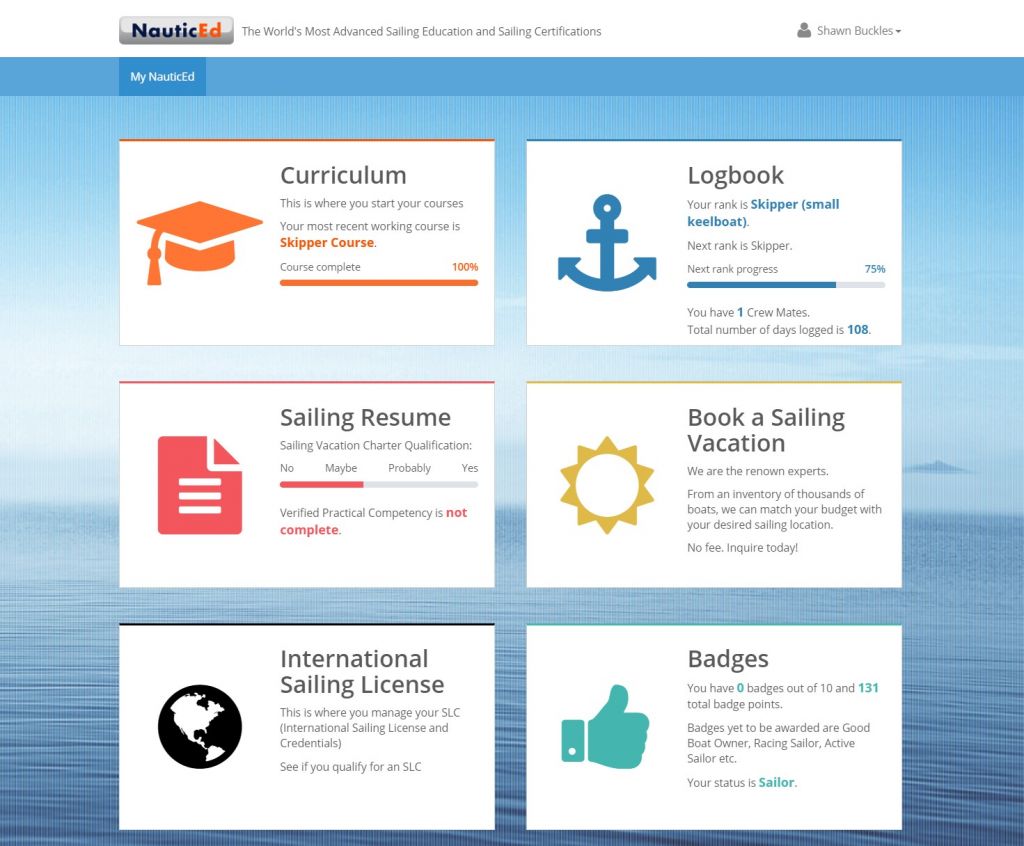
On this page:
Necessary Sailing Skills
The list of skills you need to skipper a forty-foot yacht safely for a week in unfamiliar waters is pretty large, but NauticEd doesn't make you eat the whole whale at once. They recognize that learning to sail on small keelboats and dinghies is not only valid, but necessary, and their approach is to start at the ground level and build on it.
They teach some skills at a more elementary level in the more basic courses, then expand on them more fully in advanced topics and clinics as you progress through the courses. A partial list of the theoretical skills you can learn though NauticEd is below.
- Basic sailing - parts of the boat and sails, rigs, and how sailing works.
- Boat handling, including docking, mooring, close quarters handling, spring lines, tying up, and leaving the dock.
- Navigation, both basic and more advanced course plotting and position finding with parts charts and tools, to electronic navigation and celestial.
- Basic troubleshooting and problem solving. Incorporated into several of the courses are tips for handling situations where systems don't function or things don't work.
- Chartering skills, like provisioning, water management, dealing with problems, being a good captain.
Check out NauticEd's entire course overview here.
NauticEd Offerings
NauticEd is centered on their Logbook and Sailing Resume features, and how those relate to qualifying you to skipper a bareboat charter. Skipper certification for charters is not well standardized globally, and depending on where you are in the world, different credentials and licenses may or may not be accepted.
The fundamental premise behind NauticEd is that charter companies are not looking for certificates, they're looking for sailing resumes. And part of what NauticEd offers is a standard, online resume of course work and sea time for charter companies to determine if your experience suffices to take out an expensive yacht without a captain.
You can download this resume as a PDF or share it as a web page, allowing you to very easily show charter companies your competency level.
The logbook allows you to authenticate your sailing experiences with other crew members, even if they aren't NauticEd students. This is an important value-add, since most log book entries and resumes for recreational sailing are not corroborated by others. So it looks better to charter companies.
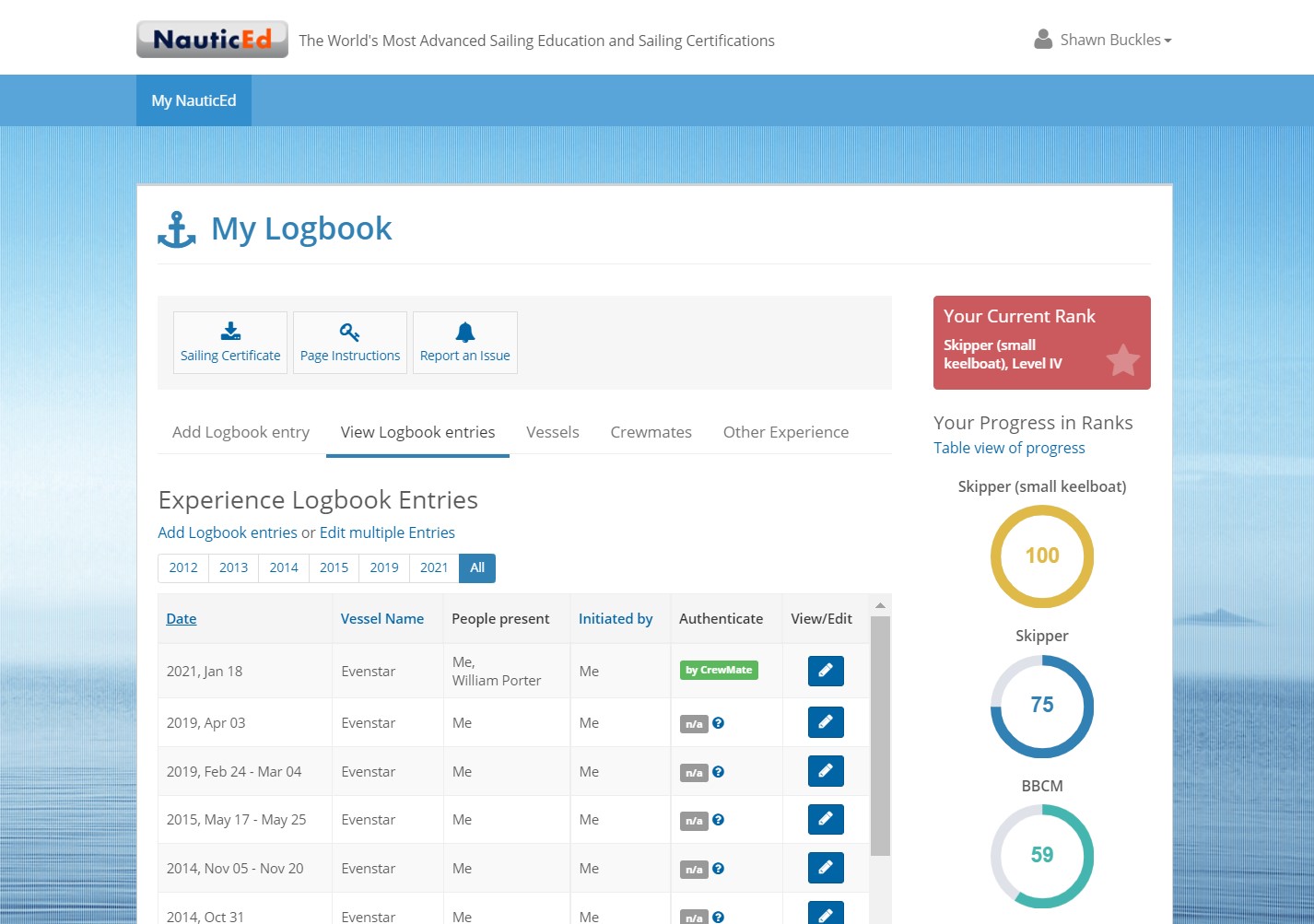
To make all this work, NauticEd partners with real-world sailing schools to provide skill checks to complete their certification levels. You can not achieve certain skill designations without having your skills checked by an instructor, which means when you have the designation, you've showed someone that you've learned the material.
Of course the resume and training isn't just focused on charters, the course work and materials benefit sailors on their own boats and as crew on other people's boats. But to a sailor starting out, getting training with NauticEd coupled with on-the-water time with a sailing school and on your own will help you build a good portfolio of skills.
All of NauticEd's classes and tests are available with a web browser or a mobile app. The content is also available in PDF format for download. They designed the apps to download course content and let you take classes and tests offline, but the PDF formats can't include all the animations and tools.
An in-depth look at a few courses
To review this program, I went through several course tracks and read material and took tests. As an experienced sailor, I wasn't looking through this with new-sailor eyes, but was assessing the content in terms of how I'd teach it and write it for a complete neophyte.
General comments
On the whole, I liked the materials I reviewed and found most of it to be accurate and well presented. There is room for improvement, but we're not evaluating this on its perfection as a tool, but on its value. And for getting most of the subject down well at the price point they offer with the additional benefits, it maintains value.
I found that some pictures, diagrams and tools do an excellent job illustrating some important concepts. But I also found some tools were not well explained, and took a bit of messing around with making them work right, and they were the primary teaching tool. In a similar vein, some questions I missed while taking tests were because I found some pictures difficult to decode. Especially when a subject was taught with an animated picture (like a tell-tale fluttering) or tool but tested with static images, which made the status of the moving object unclear.
Feedback on test questions is immediate, which is good. Not so good were the explanations on why an answer was right or wrong; some were too brief. I would prefer to make missing a question a more teachable moment, with more than a sentence or phrase about why the answer you chose was correct, or why it was incorrect.
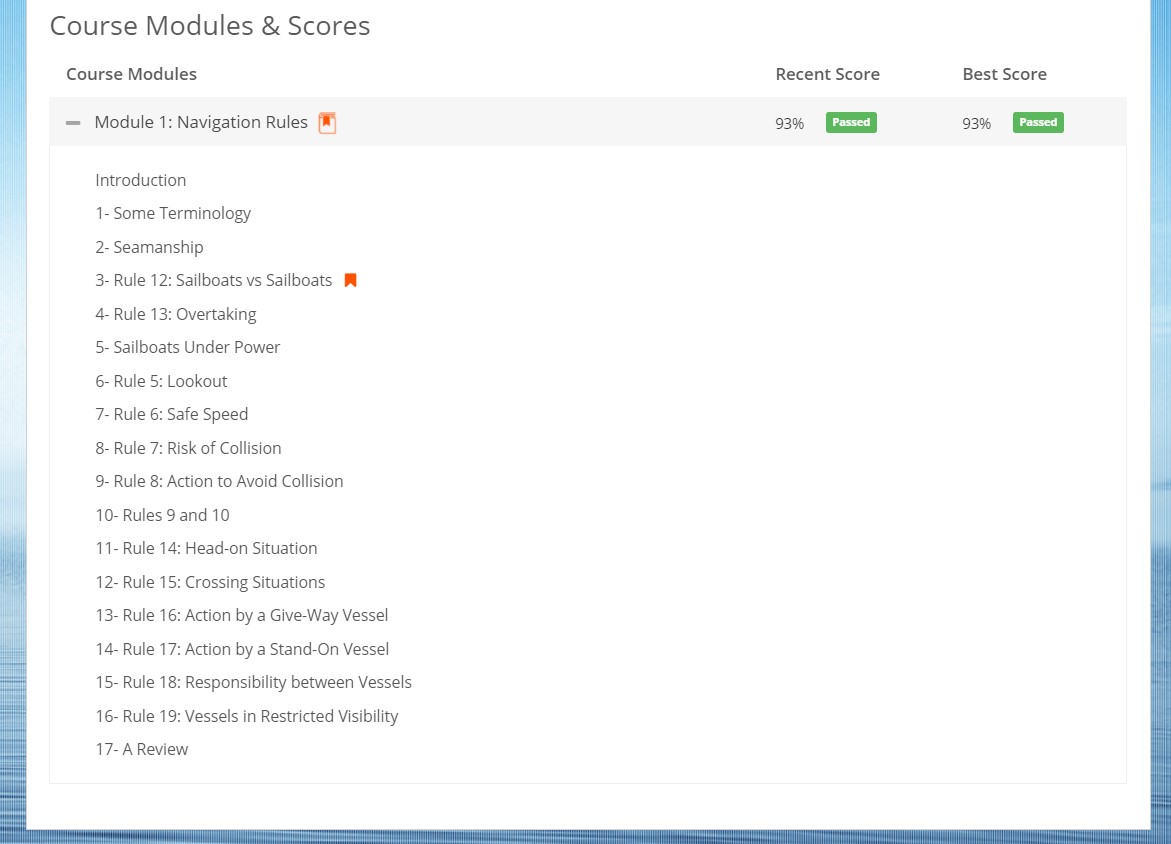
One feature I disliked on every test was the instant feedback when you missed too many questions. If you need an 80% to pass a twenty-question test, the software ends the test on the fifth missed question. That's it, you failed, you're done and must start the test over. No more questions.
I found this approach frustrating, as you don't get to test the whole topic to see how much of it you retained, rather you're quickly and severely penalized for missing too many if there's an early group of questions you missed. On some tests, this is a little as two questions before you must restart. I would prefer to see the test completed then graded at the end, so students get tested on the full range of material, then get a study guide on what they need to review and links to the relevant portions of the course texts.
It's also important to know that there are some inconsistencies and even a few inaccuracies in the materials I reviewed. Nothing so wrong as to be dangerous, but there are some topics which could benefit from reworking to be more comprehensive or clear since they may cause confusion in neophyte sailors.
Free Courses
NauticEd offers two free courses to give you a feel for how their program works. They aren't comprehensive on either topic, but they're a good place to start.
Basic Trim Course
This course is on the basics of sail trim, and of all the courses I tried at NauticEd, I thought the least of this one. Part of it was because of the graphics and image issue I mentioned above, which made the tests difficult to pass even though I've been sailing and trimming sails for twenty-five years.
But the other reason is that for a free introductory course, it doesn't start at the basics of sailing, it gets into sail trim right away. It covers rig and sail names, but assumes you already know something about how a sailboat works. For a complete beginner, I could see this being a little mystifying.
But there are some nice tools, like the apparent/true wind exercise, and you should come away understanding of a few important concepts.
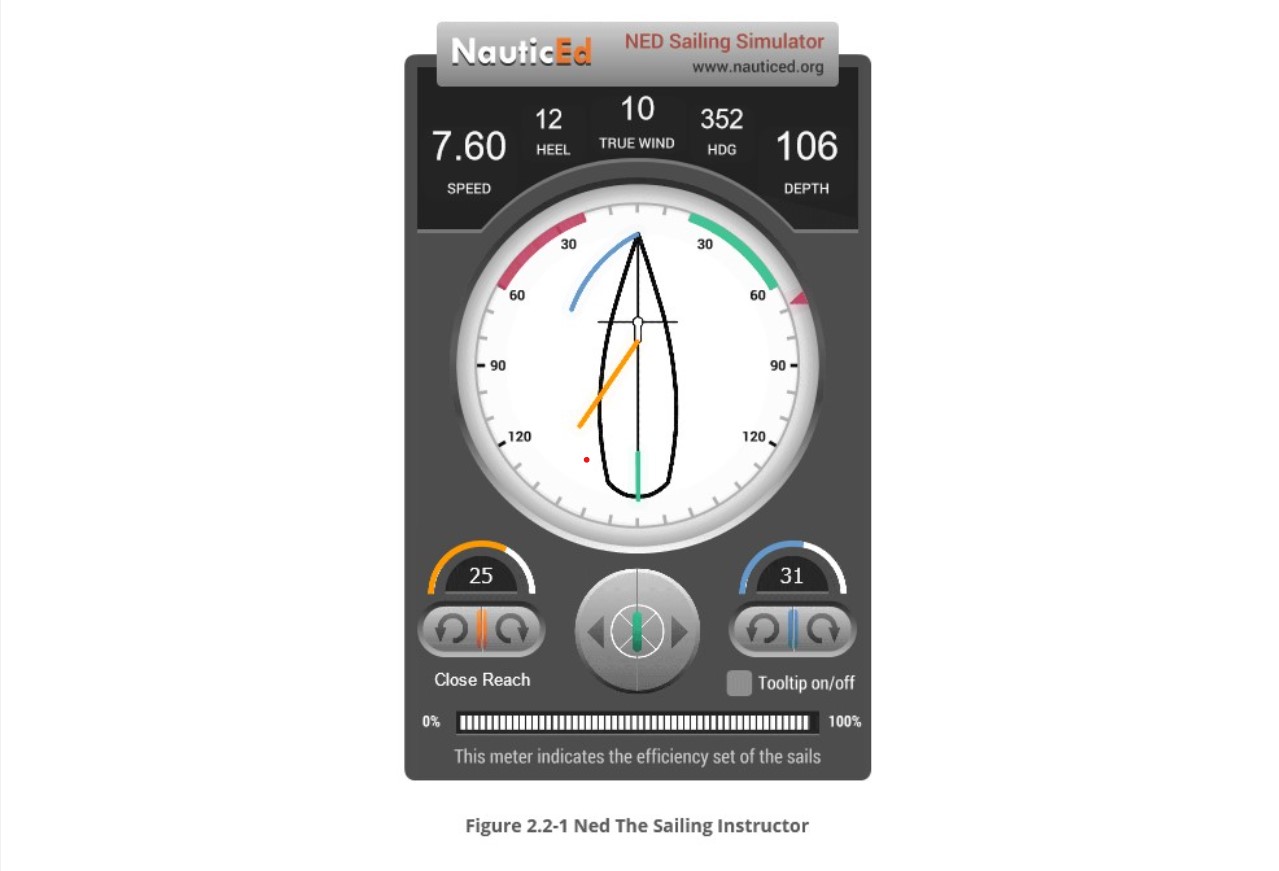
Navigation Rules Clinic
Every boater out there could benefit from taking this free course. This is a nice overview of the fundamental rules of the road, and does a fine job illustrating and testing you on several important concepts like right-of-way, who is the stand-on vessel, and what is the primary rule of navigation.
They pulled this course material right out of the Skipper Course, and it is thorough and accurate. If you do nothing else before you go on the water, go do this free course even if you are experienced. It's a nice refresher, and it's excellent material to review now and then no matter your skill level. Even if you’re just confirming what you know it’s free, and it doesn’t take that long.
Check out NauticEd's free courses here.
NOTE: When you complete one or more of the free courses, you may get an offer for a discount on additional courses. Be prepared for this if you are thinking of buying more courses, because it is time limited and expires quickly.
Coastal Navigation Clinic
This is a solid course on basic navigation in coastal waters, and will give you a good understanding of the basic concepts of navigation, plotting positions, reading a chart, routes, and fixes. Throughout there are chart examples, and they use a real chart and real navigation tools to show you the exercise. You must buy these separately.
The choice of tools is a little unusual to me, as I learned navigation with parallel rules and a divider. There is much use of a "Breton Plotter" instead, which works fine but is not the only way to handle these tasks. I'd prefer them to teach both techniques, and there's little time spent on parallel rules.
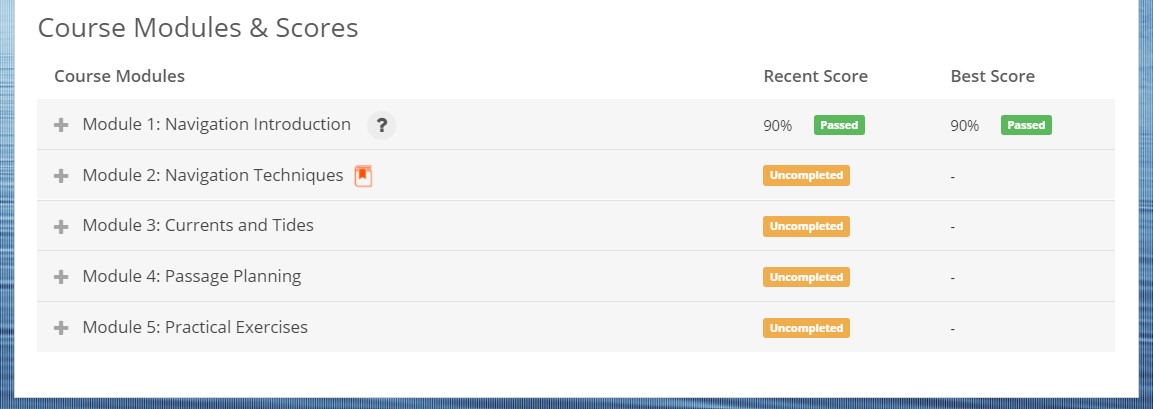
There's a link to a NauticEd "Navigation Pack" with these tools on Amazon, but it is "currently unavailable" which could leave you in a bit of a lurch using the course, as I wasn't able to find a "Breton Plotter" or "Portland Plotter" for sale in U.S. markets. There's also a "Nautical Slide Rule" mentioned, which uses a set of rotating disks to perform basic time, distance, and speed calculations. You can perform these without the slide rule; my preference is teaching the needed math since it is not complex.
But this course will teach you the basics of coastal navigation, and test you on them with a practical hands-on example.
Check out NauticEd's Coastal Navigation Course here.
Bareboat Charter Clinic
The Bareboat Charter clinic focuses on the skills to skipper a bareboat successfully in beginning level conditions. They designed it around the fundamental skills you need to charter for a week in undemanding conditions, like the British Virgin Islands. It covers not only the sailing, but how to make the trip more safe and enjoyable.
This course presents a lot of material, but by design it touches on more topics than it delves into them with any depth. On your own boat you may troubleshoot and repair problems, but on a charter if something goes seriously wrong you call the charter base. They don't want you taking things apart and trying to fix them, so there's not much need beyond quick fixes and simple problems.
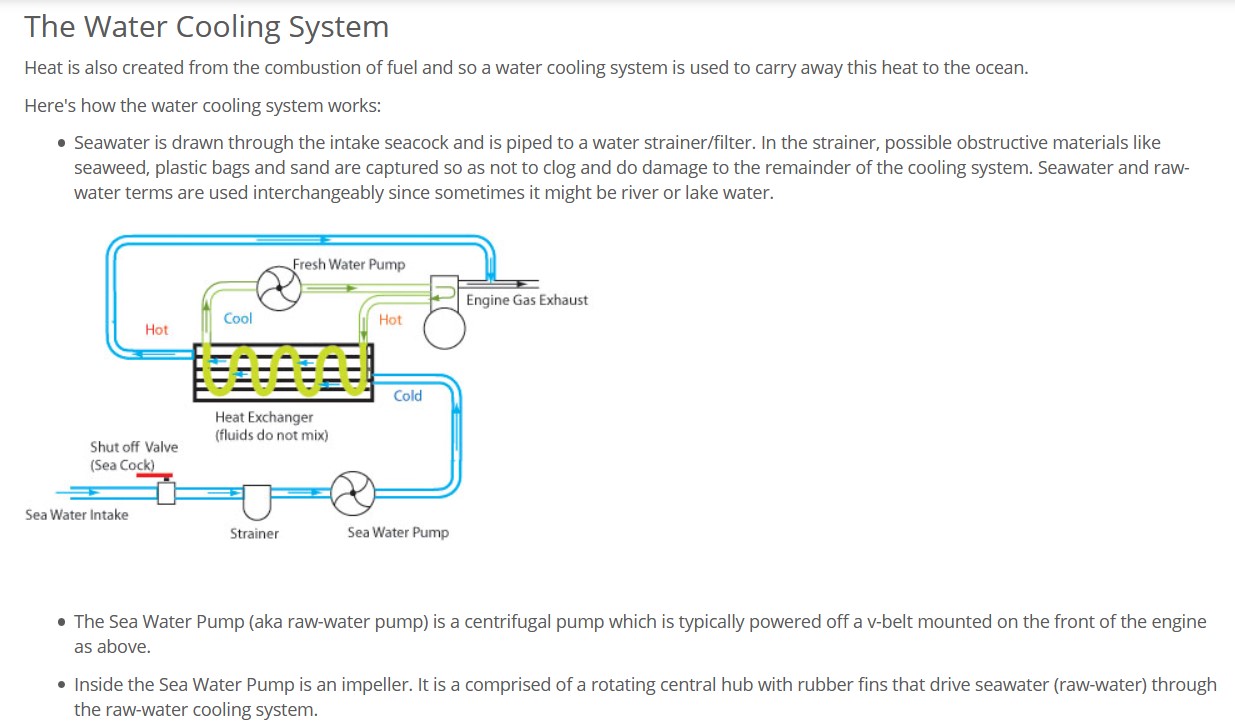
The training in this course is about how to make your charter successful, including the tips about how to sort basic problems you might have, how to negotiate a boat and its systems, and covers the how-to's of daily operation of a complex boat.
So it starts at the beginning - how to select and book your charter, and takes you through planning provisions, how to be a good captain, and many other topics to ensure smooth sailing. I thought the "good captain" section had some excellent notes. As you are the designated captain, your actions will affect everyone on the boat. You're all on vacation together, but you've volunteered to do extra work to be sure everyone has a good time, and if you drop the ball, they may not. It's something I had given little thought to before this module.
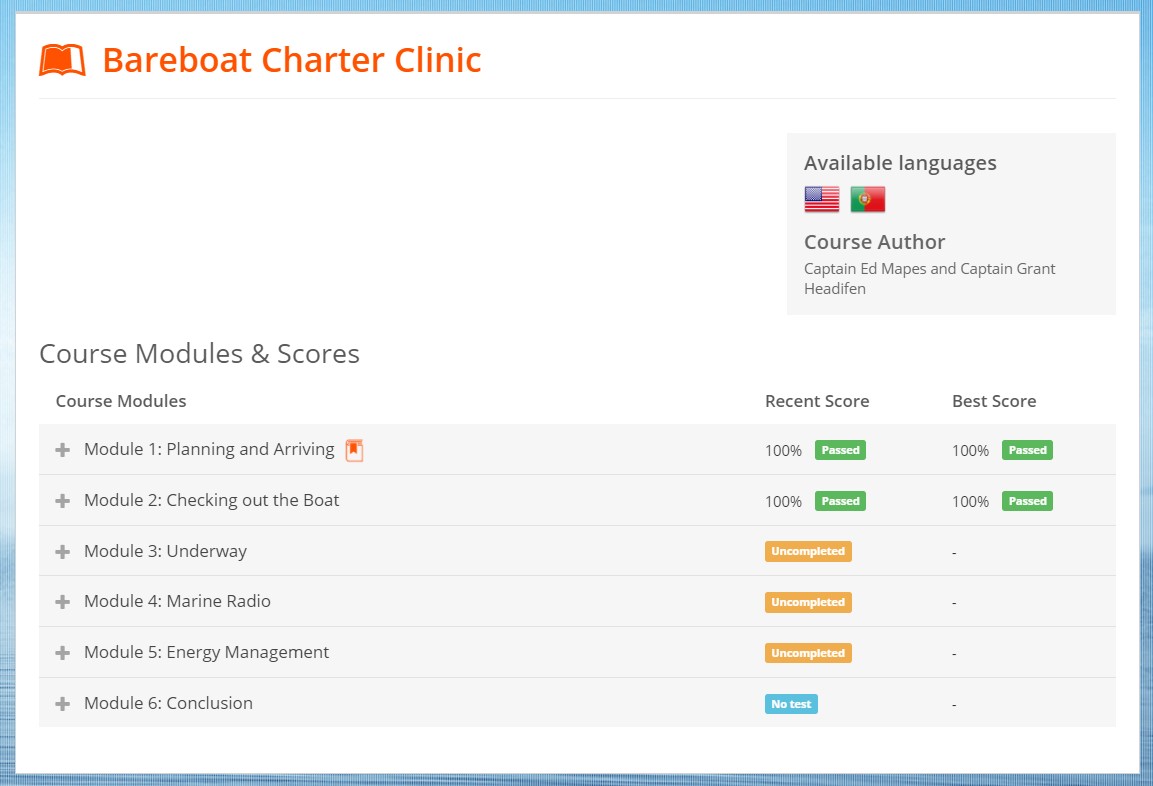
You'll find that many of the lessons here overlap later lessons in the Skippers Course and other courses. But that's not a problem, because most of the other course explore these areas in greater detail and depth than you may need on a charter vacation.
Check out NauticEd's Bareboat Charter Clinic here.
Anchoring a Sailboat Clinic
NauticEd has several "Clinic" offerings, which are deep dives onto various topics, exploring them in greater detail than you'd find in the more general courses. So while the Bareboat Chartering Clinic has four modules on anchoring, the Anchoring a Sailboat clinic gets into much more depth about the topic.
Besides how to anchor, this course talks about types of anchors and rodes, and how to select and size them for your boat. On a charter you don't need this; you get what comes with the boat. But for the boat owner this is crucial knowledge.
You'll find more information on technique, such as communicating while anchoring, using multiple anchors, maintaining an anchor watch, how weather affects your anchoring, how to use charts to find a suitable spot to anchor, and much more.
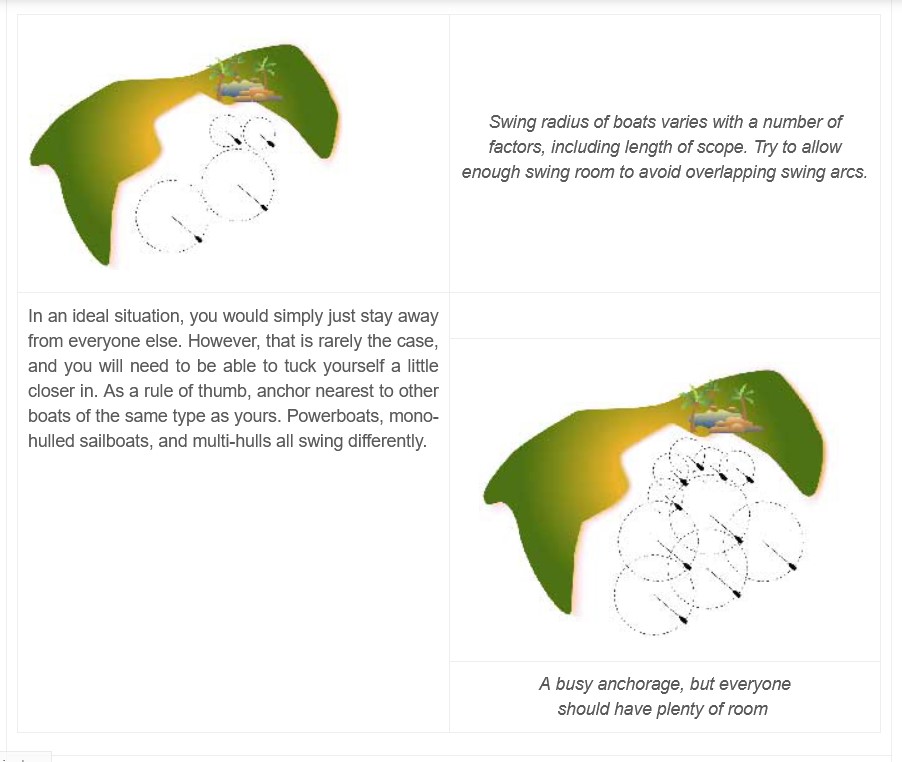
One thing I liked are the personal observations about being at anchor, how to be a good neighbor, and how to enjoy yourself and sleep better. They also show some lessons learned the hard way. These resonated with me, since we had almost identical experiences like getting caught in town at dinner when the fog rolled in and having to find our way back to the boat in a crowded, dark, and foggy anchorage.
Check out NauticEd's Anchoring a Sailboat clinic here.
Skipper Course
Think of the Skipper Course as a more comprehensive version of the Bareboat course, with the charter specific elements stripped away. You get more detail, more of the meat-and-potatoes of how boat systems work and how to work with them.
This course covers almost every aspect of operating a boat. It starts at a pretty fundamental level, assuming you have no experience. It takes you from square one on most of the topics, whether it's the basics of sailing and the points of sail, or the ideas underlying Ohms Law and how that relates to why you can't easily run a hair dryer when you're at anchor.
But his course gets into some of the detail on what you need to do to make things work (like that hairdryer), and why you should do things on your boat the way they suggest.
Topics cover include:
- Weather and Sea Conditions
- Electrical Systems
- Auxiliary Power - Diesel Engines
- Rigging and Sails
- Rules and Safety
- Slip Departures and Returns
- Sailing
- Communication
- Navigation Introduction
- Anchoring and Mooring
- Safety and Emergencies
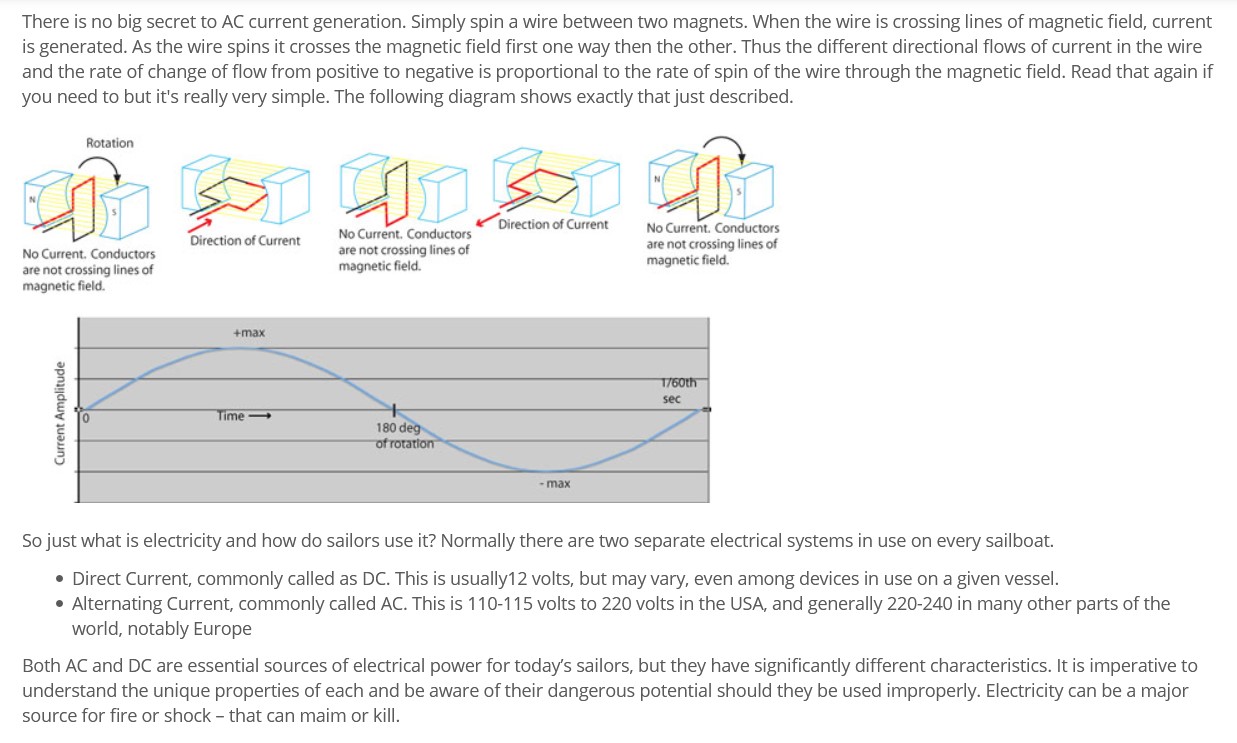
There is topical overlap with other courses, both in more or less depth, depending on the course objectives. The Anchoring Clinic provides more detail on anchoring than this course does, but it's also recommended you take them both to get the Charter Master or Offshore Captain ranks, anyway.
At the time of this writing, the Skippers Course includes a coupon for three free months of PredictWind Professional. This is worth $249; I have used this service for blue water sailing and it is first rate. It's a nice value-add for the course.
This course is an excellent overview for new skippers looking to make the move to independence, cruising their own boats locally while getting more sea time and learning new skills.
Check out NauticEd's Skipper Course Rank here.
Is NauticEd legit?
NauticEd is a legitimate means of obtaining a sailing education. The National Association of State Boating Law Administrators (NASBLA) has recognized parts of their program as meeting their criteria for boating education, and you will find many positive and happy reviews of their service online.
If you look on some of the major charter sites like Sunsail and Dream Yacht Charters, you will see them reference the NauticEd program as a valid means of getting approved to charter one of their boats. So the resume and sailing log functions should work as advertised for the companies associated with NauticEd.
Caveats and Questions
As mentioned at the start, there are a few things to be aware of as you start down the NauticEd path. While overall it can provide a good foundation or refresher, you shouldn't rely on it as your only source of nautical learning. There are many books, online programs, and courses available to supplement your online learning. A copy of Chapman's Piloting or the Annapolis Book of Seamanship next to your computer can give you some more answers if you have questions on a topic. Your NauticEd experience should make these books more approachable, and one of those should be in every sailor's library, anyway.
You need more than online classes
The online portion of NauticEd is not enough to make you a sailor. You can get the book learning and basics, but you will need to get on the water to get experience with actual sailing. There is no substitute, and if do not get the sea time you will not move to the next level of rank in the NauticEd program and you will not qualify as a bareboat skipper.
While in-person programs at a sailing school are more expensive, you get direct tutelage from an experienced sailor and time on the water. Much depends on your style of learning of course, but to benefit from online learning you must get out on the water and put the skills to use.
Assessment and on-water costs are unclear
One thing I could not find in my research was the costs for the various checkout certifications and on water experiences through NauticEd. There are links to the associated schools, but no school I checked out from their list offered a booking price online for any NauticEd related coursework, skills checks, or experiences. So for the total cost of the program, it's hard to put an exact figure. The program does state the verifications are optional, but also that they will increase the acceptance of your credentials by charter companies.
Some of the linked schools are just sailing schools, and they may have curricula and courses for ASA and RYA courses on offer with pricing. But some schools are certified instructors, and the website may be for a charter yacht, captain, or other nautical services as the primary business. On no affiliate school site did I find any details about NauticEd courses, testing, or pricing - but I couldn't check every site. So make sure you ask when you reach out to book on-water services that they offer what you need and ask what it costs.
For experienced sailors
If you're starting your sailing life with NauticEd, the logbook is easy and automatic and will build itself as your skills grow. You take courses, go sailing, you make an entry, and you're done.
Getting your logbook experiences entered and validated can be a chore if you've been sailing for a while. I don't have records going to back to my first boat twenty-five years ago. To test the system, I pored over my cruising logs for the last few years, adding entries. And I don't have a clue how many times I've pulled into and out of slips or anchored in that time. It's doable, but I wanted to get in just enough with some best guesses to get to the next level, which wouldn’t have reflected my experience accurately.
The interface isn't onerous to use, though not all the trip details can be applied well to multi-day passages. You can enter trips rapidly as it starts from your last trip details when entering in batches, so working forward through a log is easy. Much of your work will be re-creating your own sailing history if you've not kept meticulous records of sea time. If you have good logs, it will be easier.
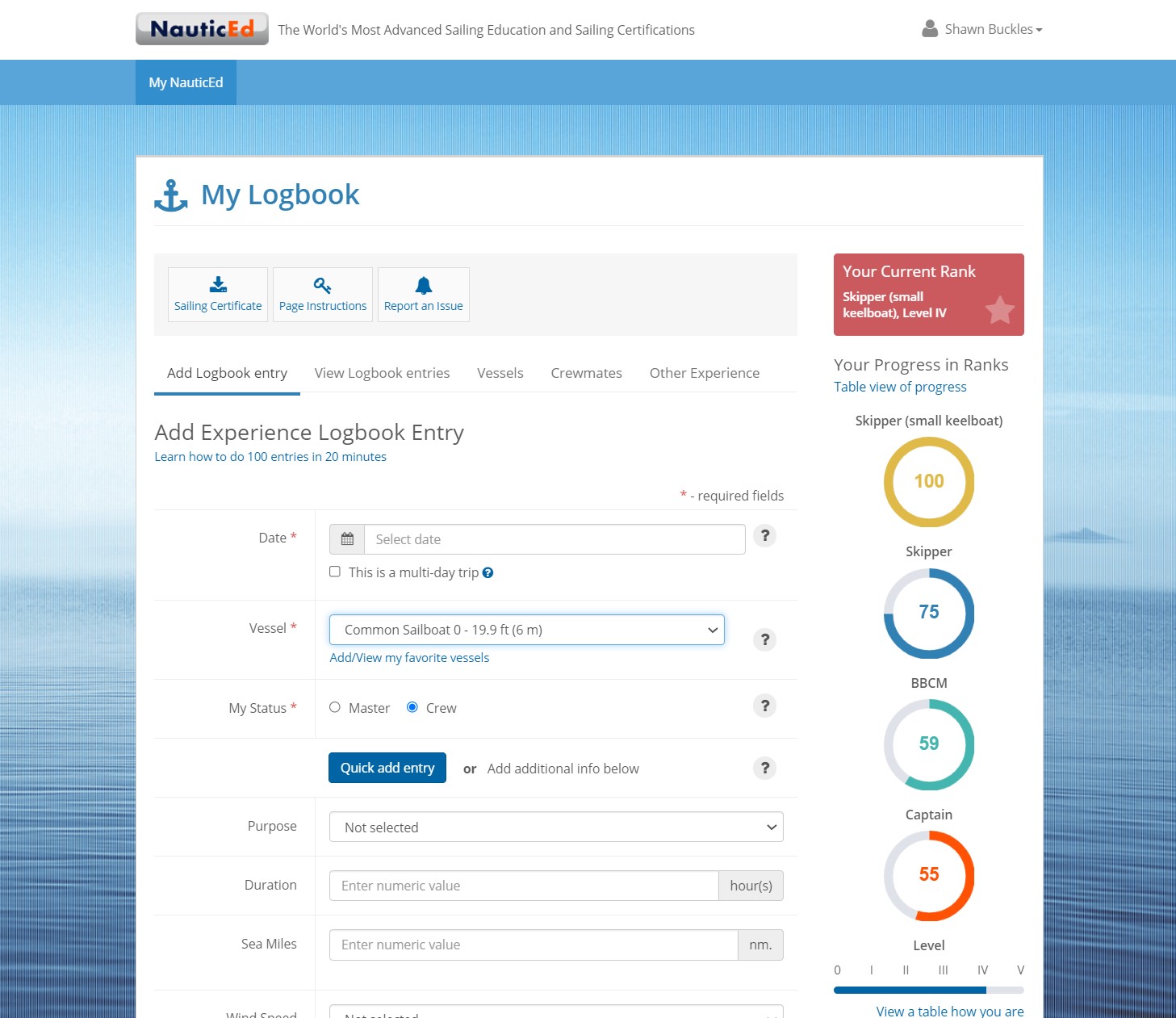
In the courses, you'll be repeating material you know to achieve the Captain rank. This isn't the worst thing, as we all forget details over time and refresher courses never hurt. But know that you may need to pay for courses that don't teach you a lot to get the rank you wish. I do not know if there is any way to "test out" of anything, though you can skip all the course materials and go right to the test in any section.
NauticEd vs ASA
The American Sailing Association offers sail training and certification in the United States, and is primarily a sail training program. Although they have a few online offerings of their own, the primary educational focus is on in-person training. The ASA "bareboat certification" requires three courses: ASA 101, 103, and 104. Most charter companies recognize the certification, however there is no sea time requirement to be met, so you will still have to provide a resume.
The ASA offers several advanced online courses, both on its own and through partners, though the cost is higher than comparable NauticEd courses. NauticEd's Weather Clinic is $39 for seven hours of training, compared to "Marine Weather University Fundamentals" offered through ASA at Isler Academy, where an eight-course online weather class is $549. But without a direct comparison of course content, it's hard to determine the comparative quality of the two courses.
ASA publishes print manuals for its courses which are available for purchase separately for use in conjunction with the courses, though they are included with tuition if you take a course.
NauticEd vs RYA
The Royal Yachting Association is the governing body for the sport of sailing in the United Kingdom. It's analogue in the United States is U.S. Sailing, and both bodies are involved in all aspects of the sport from dinghy racing, developing the sport of sailing, advocating for sailors and sailing, and developing sail training programs.
The RYA Yachtmaster certification is held in high regard internationally for the quality of the training and the certification and validation of the skills of the holder. Part of the reason for this is the extensive training and experience requirements to achieve the certification. Most training and practical learning is in person, and more expensive and time consuming than NauticEd.
For chartering, most charter companies accept the RYA Day Skipper practical course , though you will probably need to provide a sailing resume to show experience.
The RYA offers online education for some of the shore-side training programs, so you can forego a classroom. All online, shore-side, and practical courses are offered through sailing schools, not the RYA. Pricing may vary, but the Day Skipper Theory course online costs about $350.
Note that this specific course is also available through NauticEd for a similar price, above and beyond the core NauticEd courses, and NauticEd may offer other RYA courses.
Check out NauticEd's RYA Day Skipper course here.
The Bottom Line
To put it all together, NauticEd is a reasonably priced means to get shore-side, theoretical training in many fundamental sailing skills. Online-only courses lack direct on-the-water training, so you may find that more expensive ASA or RYA programs with instructors may jump-start your practical skills more quickly.
But if used with real sailing experience and tie-ins to NauticEd sailing schools, it can be a good basis to start your sailing journey for a reasonable price.
Go to NauticEd and start your sailing education today for free.
Did you find the answer to your specific question?
👍 7 👎 1
Comments
Jeromey
Answered questions I didn’t know I had haha. Thanks for the info and your time pulling this together….
Leave a comment